Why China's economists and entrepreneurs are keeping mum about the economy
Even as the Chinese authorities continue to battle the spread of Covid-19, one thing is bugging people: why does it seem like nobody cares about the economy? China's latest economic figures do not look good, and the protracted lockdown in Shanghai and semi-lockdowns in Beijing are not helping people's livelihoods. Zaobao correspondent Yu Zeyuan examines the cost of zero-Covid.
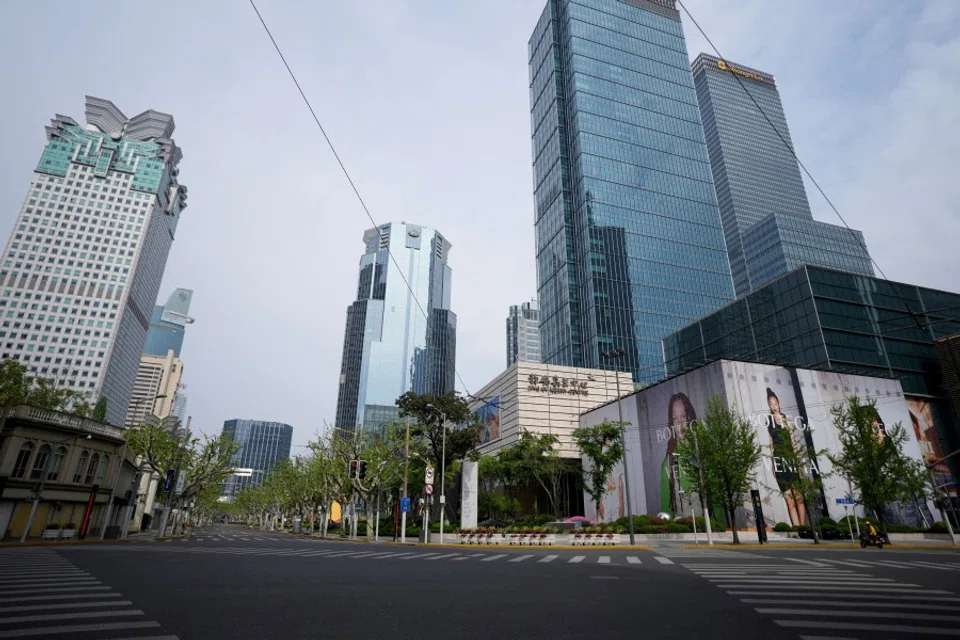
Over the past couple of days, a viral article titled "No One Cares About the Economy Except Hu Xijin" has resonated with many people in China.
This article listed the many recent comments on the economy made by former Global Times editor-in-chief Hu Xijin, lamenting that he might be the only "Big V" (大V, verified internet personality) and elite who cares about China's economy right now. "Where has everybody else gone to?" the article asked.

Thinking about the 'big picture'
The viral article questioned what China's economists are doing when they should be drumming up support for China's economy. They do not seem to be actively addressing China's economic woes as much as Hu has done.
"Of course, Hu Xijin also goes into philosophical reasoning, but at least the titles and highlighted quotes in his articles do not beat around the bush in addressing problems," the article said.
Adding that the economists are no match for Hu, the article wrote, "This is not to denigrate anyone, but during this period, few of China's economic elites have been as good as Hu Xijin."
The intellectuals feel helpless and hard done by, as they have always tried their best to give advice, which has fallen on deaf ears, and even risk getting caught up in controversy.
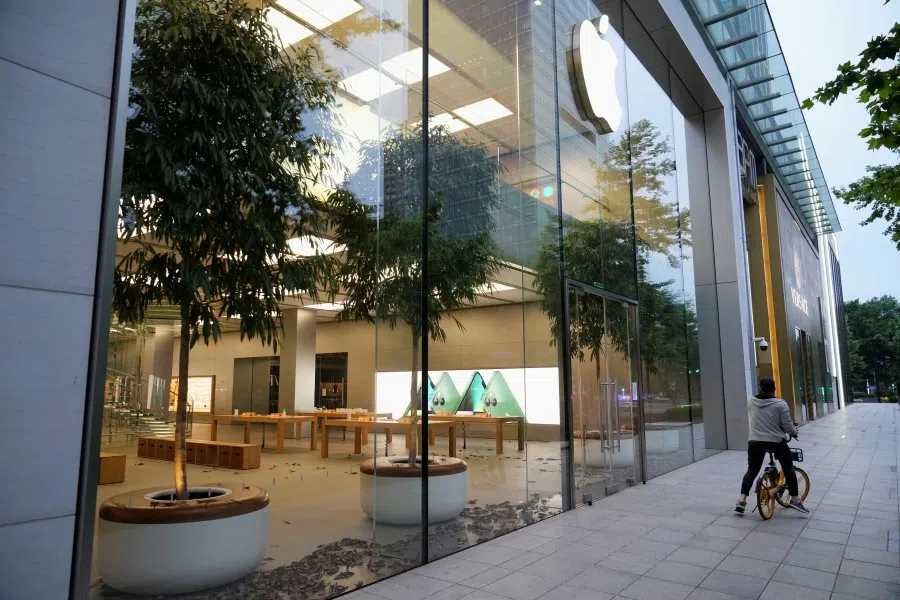
The article said that even intellectuals and entrepreneurs have not been "worried" about the economy recently. The intellectuals feel helpless and hard done by, as they have always tried their best to give advice, which has fallen on deaf ears, and even risk getting caught up in controversy.
Entrepreneurs also find it tiresome; it is no big deal if there is no real response to their comments expressing concern over the economy, but now, with "political correctness" trending online, if someone complains about the difficulty of running a business and maintaining a livelihood, there will immediately be a horde of people throwing brickbats, saying that "you're not looking at the big picture", "life is bigger than money", "don't blame the policies if you can't run a business well", and "money grubbing capitalists should go bankrupt". What else could the entrepreneurs say, or dare to say?
Economy in the doldrums
The article further highlighted how people became numb to the economic situation, saying, "In April, you were stuck at home for a month worrying about the economy, while believing that others like you were also thinking of the economy as the most important thing in the world. Then in May, you found out that you were gravely mistaken. You were all worked up but not everyone was concerned with the economy as the 'big picture'. Well, we can all go home and take care of our own little things then."
This article went viral mainly because it reflects people's current anxiety and helplessness that the economy and society have not gone back to normal. Since March this year, the virus has spread in places such as Jilin, Shanghai, Beijing and Sichuan, leading to many areas going into lockdown or semi-lockdown. This has had a severe impact on economic activities and social life, and also affected people's income and confidence in the future.
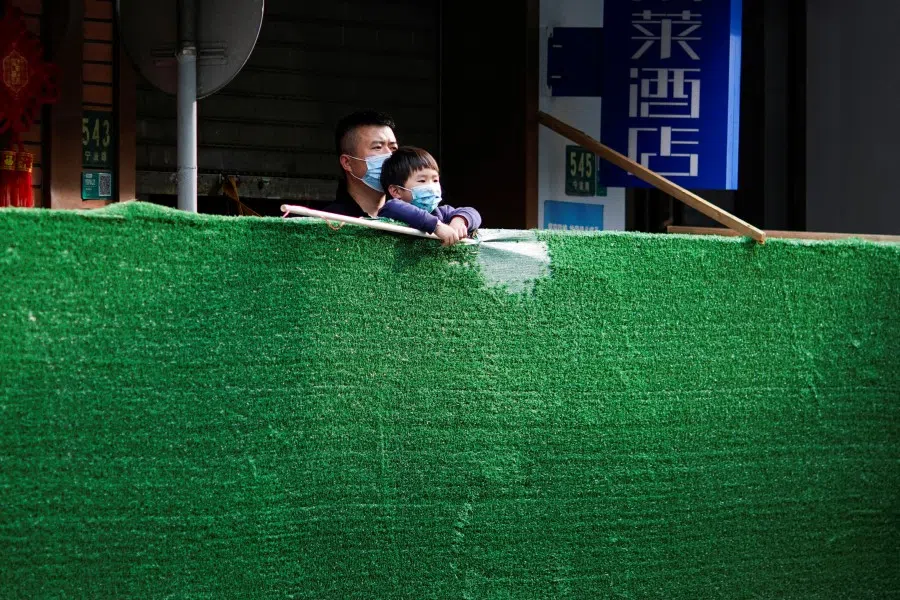
Figures released last week by the Chinese authorities show a clear decline in key economic indicators in April for the industrial and service sectors, and consumer imports and exports. Retail sales contracted 11.1% year-on-year, while unemployment climbed to 6.1%, the highest level since March 2020. In addition, the unemployment rate for workers in the 16 to 24 age group reached a record high of 18.2%.
Following the lockdown that has lasted for more than 50 days, Shanghai's April retail sales fell 48.3% year-on-year, while the output of Shanghai's industries above a designated size shrank 61.5% year-on-year. And as many areas in Beijing have been under semi-lockdown since May, the economic figures for the first half of this year will definitely be downbeat.
Beijing announced the implementation of four additional anti-epidemic measures on 21 May, further tightening and strengthening the social containment of the pandemic. Residents in Chaoyang, Fengtai, Fangshan, Shunyi and Haidian districts will now work from home while those in other districts will limit how often they go to the office to reduce their movement. The Chinese capital will continue to urge people not to gather or congregate unless necessary and refrain from leaving their homes.
Under such circumstances, apart from thinking about their three meals and the pandemic, people neither have the time nor the energy to think about other matters, and they are powerless even if they did.
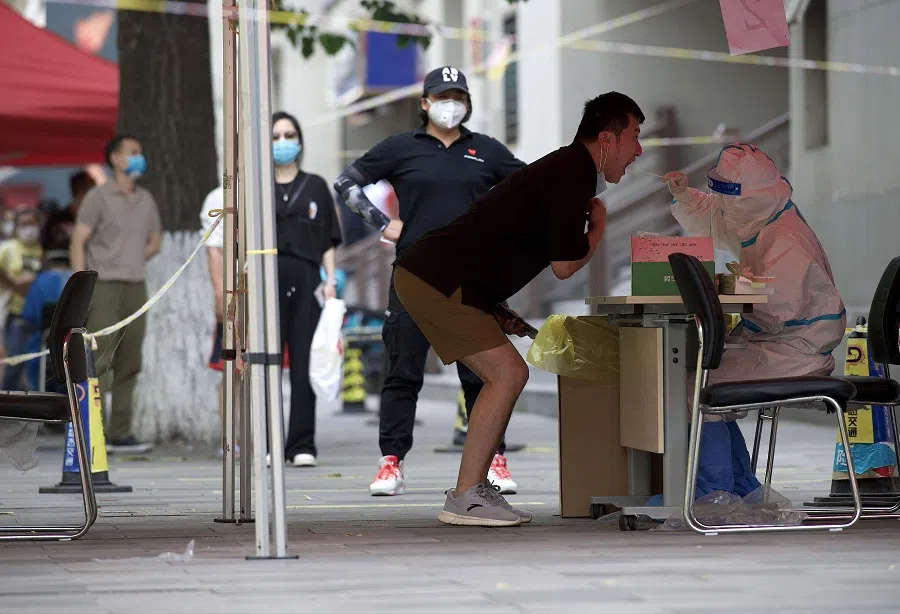
Over the past month, Beijing's official media's rhetoric revolved around strict prevention and control of the pandemic outbreak. Nucleic acid testing has also become a daily routine for most residents. Under such circumstances, apart from thinking about their three meals and the pandemic, people neither have the time nor the energy to think about other matters, and they are powerless even if they did.
Thus, calls for more attention on the economy and people's livelihoods, as well as on regaining market confidence are often drowned out, and it is no wonder people resonate with the article asserting that "no one cares about the economy".
Some also worry that, if the current situation persists, not only would the pandemic not be contained, but the state's baseline of "adhering to economic construction as the centre" could also be reduced to idle talk.
Stepping up sense of urgency
However, it is also a gross generalisation to say that officials do not care about the economy. Over the years, economic development is the foundation upon which the Chinese ruling party handles all its challenges.
Chinese leaders at all levels also agree with the idea that "there would be little problems when there is rapid growth, major problems when there is little growth, and everything will be a problem when there is no growth". Hence, Chinese officials would be destroying their own future if they do not care about the economy.
China could see a growth of just 2% this year. If this happens, China will face tougher challenges at home and abroad.
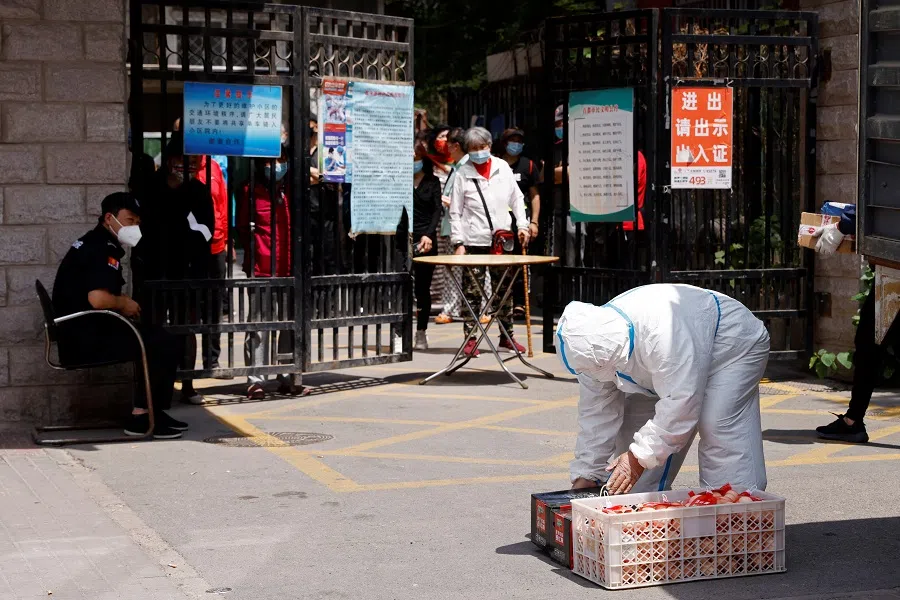
Chinese Premier Li Keqiang chaired a symposium attended by government officials from 12 provinces - including the top ten in terms of economic aggregate - in eastern, central, western and northeastern China on 18 May in Yunnan province. He said that most of the policies introduced by the Central Economic Work Conference and the government work report have already been implemented in the first half of 2022, and urged all localities and departments to "step up their sense of urgency" and implement new measures where possible.
He called for new policies to be implemented by the end of May to ensure that the economy is operating at a reasonable range to bring its growth back on track this year.
However, people are worried that while the higher-ups have repeatedly emphasised that the pandemic must be contained and the economy must be stabilised at the lowest cost possible, the country has paid a high price as a result of the lockdowns and semi-lockdowns in Shanghai, Beijing and other regions. If this situation persists, it could be difficult to achieve the goal of stabilising the economy and employment.
Quoting forecasts made by various think tanks, Bloomberg recently reported that China could see a growth of just 2% this year. If this happens, China will face tougher challenges at home and abroad.
While saying that "no one cares about the economy" could be an exaggeration, it is a fact that people are concerned about the issue. The Chinese government needs to regard the sentiment seriously and find a solution as soon as possible.
Related: It takes a mountain of effort to tell the truth about China's economy | Tough Covid measures in China may drag on for another year | Covid-stricken Shanghai is down, but is it out? | China's powerful export engine losing steam amid Covid-19? | Escape from Shanghai: The sorry state this megacity finds itself in | Best of both worlds: China wants both zero-Covid and economic growth





